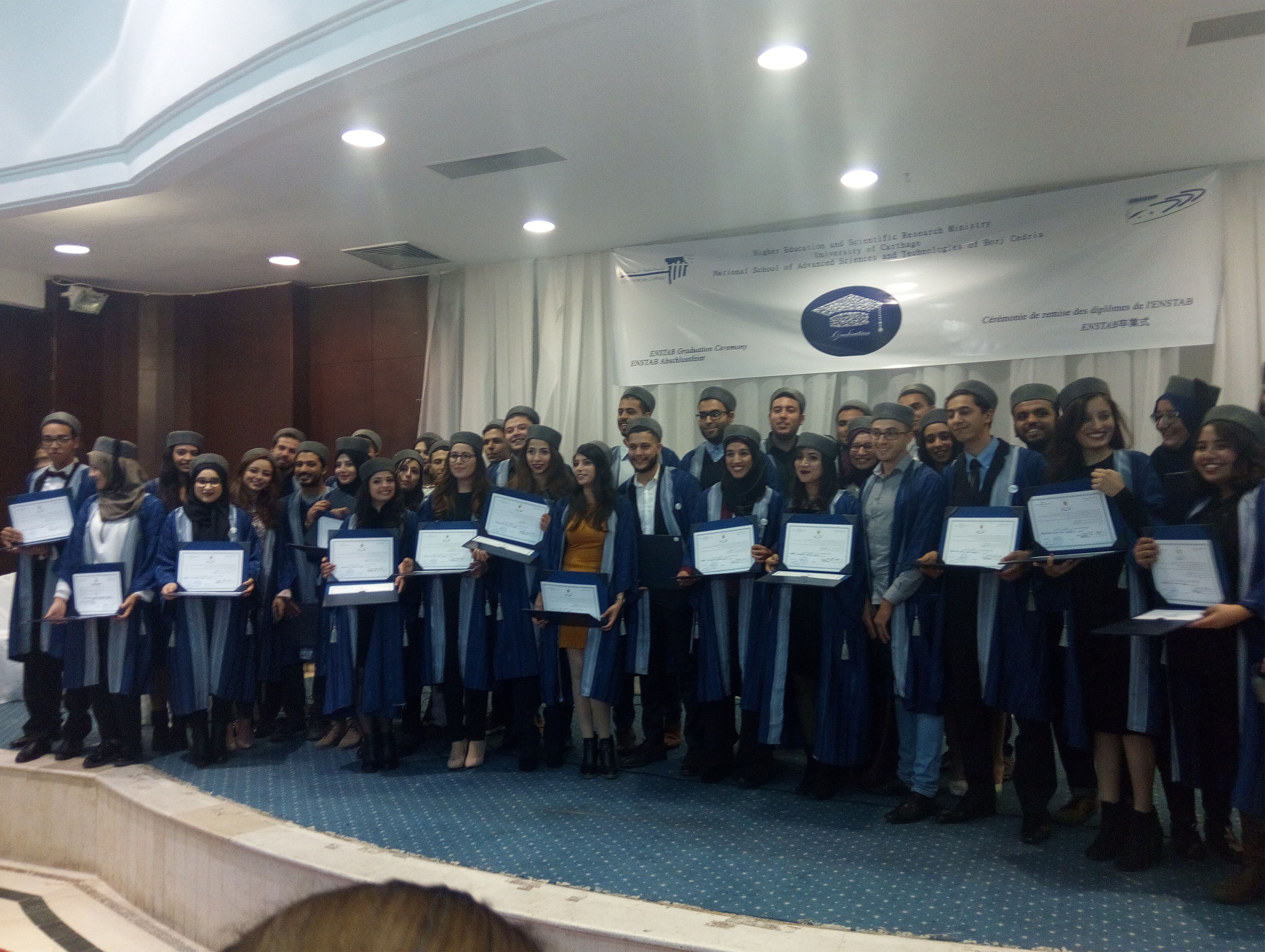Saturday December 16, 2017 was the day when ENSTAB’s (Ecole Nationale des sciences et Technologies Avancées de Borj Cedria) first graduation ceremony took place in Dar Ezzahra hotel.
This celebration was carried out in the presence of the Japanese ambassador Mr. Mikio SHIOKAWA , resident representative of the JICA in Tunisia, Mr. Toshifumi Egusa , minister of higher education Mr. Slim Khalbous, Carthage university ‘s rectrix Ms. Olfa Benouda and ENSTAB’s director Mr. Faouzi Chaabane.

First the university’ director Mr. Faouzi Chaabane gave a speech in which he mentioned the university’s achievements in different fields (studying, social life and clubs, sports…) and thanked the organizations that have helped with the university’s progress.
After that it was the Japanese ambassador Mr. Mikio SHIOKAWA‘s turn to give his speech. He thanked the graduating engineering students for their hard work and congratulated them for their success. He then spoke about the importance of the Tunisian-Japanese corporation and announced that there is a possibility for the graduates to pursue a master’s degree in Japan.
Later on, Carthage university ‘s rectrix Ms. Olfa Benouda talked about the launching of the university from her point of view as an involved party and how amazing of an achievement it was.
Finally, the minister of higher education, Mr Slim Kalbous came forward to address the graduating students, their families, the university’s staff and everyone who was present at the time. He expressed his satisfaction towards the youth who made it into competent and polyvalent engineers despite all the difficulties. He also focused on the high value of advanced technologies and the big role they play in the progress of our country.
The ceremony was carried out after that with the opening word of the promotion’s top ranker that signaled the start of the diplomas being givien out. Finally, each one of the students -who wore a graduation costume based on our traditional clothing- was called onstage to receive their diploma.
The ceremony continued in a joyful atmosphere coupled with musical performances during breaks from some of the talented ENSTAB engineering students.


Share your thoughts